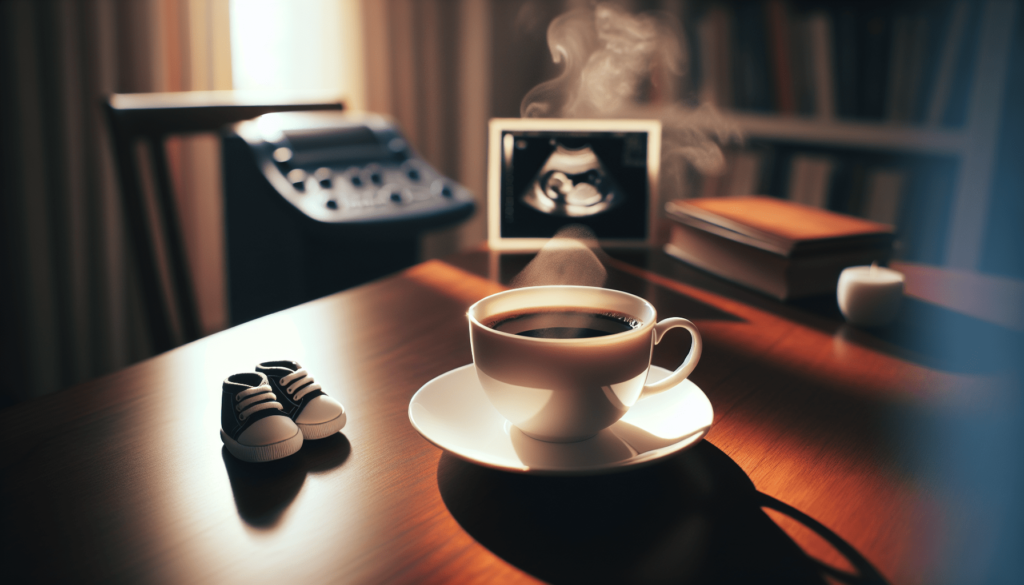Have you ever wondered if your morning cup of coffee could affect your chances of becoming a parent? It’s a question that many aspiring fathers find themselves asking, especially as they become more health-conscious and begin to scrutinize their daily habits. The relationship between caffeine consumption and fertility, particularly in men, has been a topic of growing interest and research.
Understanding Caffeine: What Is It?
Caffeine is a natural stimulant found in various foods and beverages, most commonly in coffee, tea, and energy drinks. It’s known for its ability to boost alertness and wakefulness by stimulating the central nervous system. While these benefits are often embraced, it’s important to consider the potential drawbacks, especially when trying to conceive.
Sources of Caffeine
Caffeine comes in many forms and is present in various common groceries. Here’s a table that lists some popular sources of caffeine with their approximate caffeine content:
| Beverage/Food | Serving Size | Caffeine Content (mg) |
|---|---|---|
| Brewed Coffee | 8 oz | 95 |
| Espresso | 1 oz | 63 |
| Green Tea | 8 oz | 28 |
| Cola Soft Drinks | 12 oz | 33 |
| Dark Chocolate | 1 oz | 24 |
| Energy Drink | 8 oz | 80 |
Understanding these common sources of caffeine can help you regulate your intake better as you prepare for the journey of parenthood.
The Role of Caffeine in Reproductive Health
The main point of concern when discussing caffeine consumption and fertility is how this stimulant could potentially impact reproductive health. The discussion often revolves around its effects on sperm quality, motility, and overall reproductive capability.
Impact on Sperm Quality
Sperm quality is crucial for successful conception. Research has suggested that high caffeine intake could be linked to possible DNA fragmentation in sperm. Damaged DNA in sperm cells can lead to infertility or unsuccessful fertilization.
Sperm Motility and Count
Sperm motility refers to the ability of sperm to move efficiently, which is essential for reaching and fertilizing the egg. Some studies have indicated that excessive caffeine consumption might reduce sperm motility. Meanwhile, other studies show mixed results on sperm count, with some indicating a decrease and others showing no significant impact.
Hormonal Balance
Hormones play a vital role in regulating reproductive functions. Research shows that high caffeine consumption can potentially disrupt the endocrine system, which governs hormonal balance. This disruption could affect testosterone levels, which are crucial for male fertility.

Scientific Studies and Findings
Understanding scientific research can provide clarity on whether you should avoid coffee when trying to conceive. Here, we summarize some key studies and findings to help you make an informed decision.
Large-Scale Cohort Studies
A number of large-scale cohort studies have attempted to establish a link between caffeine consumption and male fertility. These studies have produced varied results, leading to ongoing debate in the scientific community.
Study 1: A Harvard study involving male partners of couples planning pregnancy showed no significant impact of caffeine intake (up to 200 mg/day) on fertility.
Study 2: Another research carried out by the National Institutes of Health revealed that males consuming over 300 mg of caffeine daily had a slightly lowered fertility rate.
Animal Studies
Animal studies often provide insights that can be challenging to obtain from human studies.
Rat Study: Research conducted on rats demonstrated that excessive caffeine intake could lead to decreased sperm motility and count.
Further Observations: However, translating these findings directly to humans can be tricky, as the exact physiological impacts often differ between species.
Meta-Analysis
Meta-analyses consolidate findings from multiple studies to provide a comprehensive view.
Recent Meta-Analysis: A recent meta-analysis combining data from various studies suggested that moderate caffeine consumption (less than 300 mg/day) is unlikely to significantly impact male fertility. Overconsumption, however, might pose risks.
Recommendations from Health Organizations
Official health organizations provide guidelines to help manage caffeine consumption. Their recommendations often consider the best available scientific evidence to help you make healthy lifestyle choices.
World Health Organization (WHO)
The WHO advises moderation in caffeine consumption, especially for those trying to conceive. While exact limits aren’t specified, the emphasis is on avoiding excessive intake.
American Society for Reproductive Medicine (ASRM)
The ASRM suggests that men trying to conceive should limit their caffeine intake to under 300 mg per day. This recommendation stems from the need to balance potential risks with the known benefits of moderate caffeine use.

Factors to Consider
The impact of caffeine isn’t just about the quantity consumed; various factors can influence how your body handles caffeine. Here are some considerations to keep in mind:
Genetics
Your genetic makeup can determine how efficiently you metabolize caffeine. Some people are slow metabolizers, which might make them more susceptible to the adverse effects of caffeine on fertility.
Lifestyle and Diet
A balanced diet rich in antioxidants and nutrients can mitigate some negative effects of caffeine. Likewise, maintaining a healthy lifestyle through regular exercise may help improve overall reproductive health.
Sleep Patterns
Caffeine can interfere with sleep quality, and poor sleep can adversely affect hormonal balance and sperm quality. Ensuring you get adequate and restful sleep is crucial for optimal fertility.
Stress Levels
High stress levels can impact fertility. Ironically, the very stimulant you rely on to cope with stress—caffeine—can exacerbate stress by increasing cortisol levels. Managing stress through mindfulness practices can help maintain fertility.
Practical Tips for Reducing Caffeine Intake
If you’ve decided to limit caffeine, you might be curious about practical ways to do so without sacrificing your daily routine.
Gradual Reduction
Instead of quitting caffeine abruptly, which can lead to withdrawal symptoms like headaches and irritability, consider a gradual reduction. Start by decreasing your daily intake little by little.
Switch to Low-Caffeine Beverages
Opt for beverages with lower caffeine content, such as green tea or decaf coffee. These can still give you a sense of ritual without the high caffeine levels.
Hydration
Keep yourself well-hydrated. Sometimes, thirst is mistaken for fatigue, leading you to consume caffeine unnecessarily. Drinking plenty of water can help you stay alert naturally.
Nutrition
Consuming a balanced diet rich in fruits, vegetables, whole grains, and lean proteins can provide the energy you need, lessening your dependence on stimulants like caffeine.
Mindful Alternatives
Explore the world of caffeine-free options. Herbal teas, for instance, can be soothing and offer various health benefits without caffeine.
Benefits of Reducing Caffeine Intake
Cutting down on caffeine can have various benefits beyond improving fertility. These benefits can add extra motivation to your efforts.
Improved Sleep Quality
Reducing caffeine can significantly improve your sleep quality, making you feel more refreshed and less reliant on a morning jolt.
Enhanced Mood
Lower caffeine intake can stabilize your mood, reducing feelings of anxiety and jitteriness. A stable mood is beneficial for both mental health and fertility.
Better Digestion
Excessive caffeine can lead to digestive issues like acid reflux and gastritis. Cutting back can help improve your digestive health, contributing to overall well-being.
Financial Savings
Reducing the number of coffee cups you buy can also lead to significant financial savings over time, allowing you to invest that money elsewhere, perhaps in pregnancy planning.
Conclusion
The question of whether men should avoid coffee when trying to conceive is nuanced. While moderate caffeine consumption (less than 300 mg/day) is generally considered safe, overconsumption could pose risks to male fertility. Factors like genetics, lifestyle, and overall health play crucial roles in how caffeine affects you individually.
Carefully consider the evidence and recommendations when making a choice. If you decide to reduce your caffeine intake, practical steps such as gradual reduction, choosing low-caffeine alternatives, and focusing on a balanced diet can make the transition smoother.
Ultimately, preparing for parenthood involves multiple aspects of health and well-being. While moderating caffeine is just one piece of the puzzle, it’s an important consideration for optimizing fertility and achieving your dream of becoming a parent.
